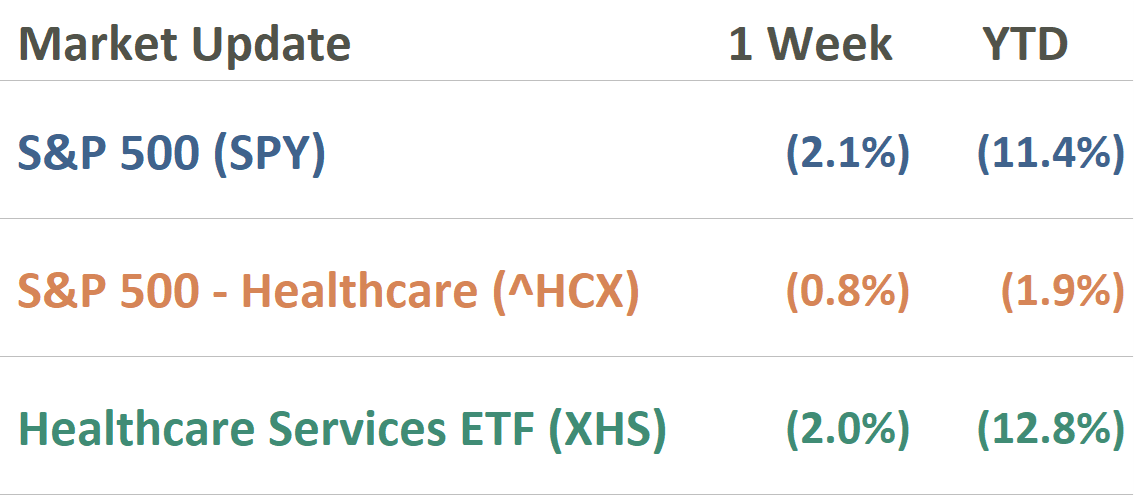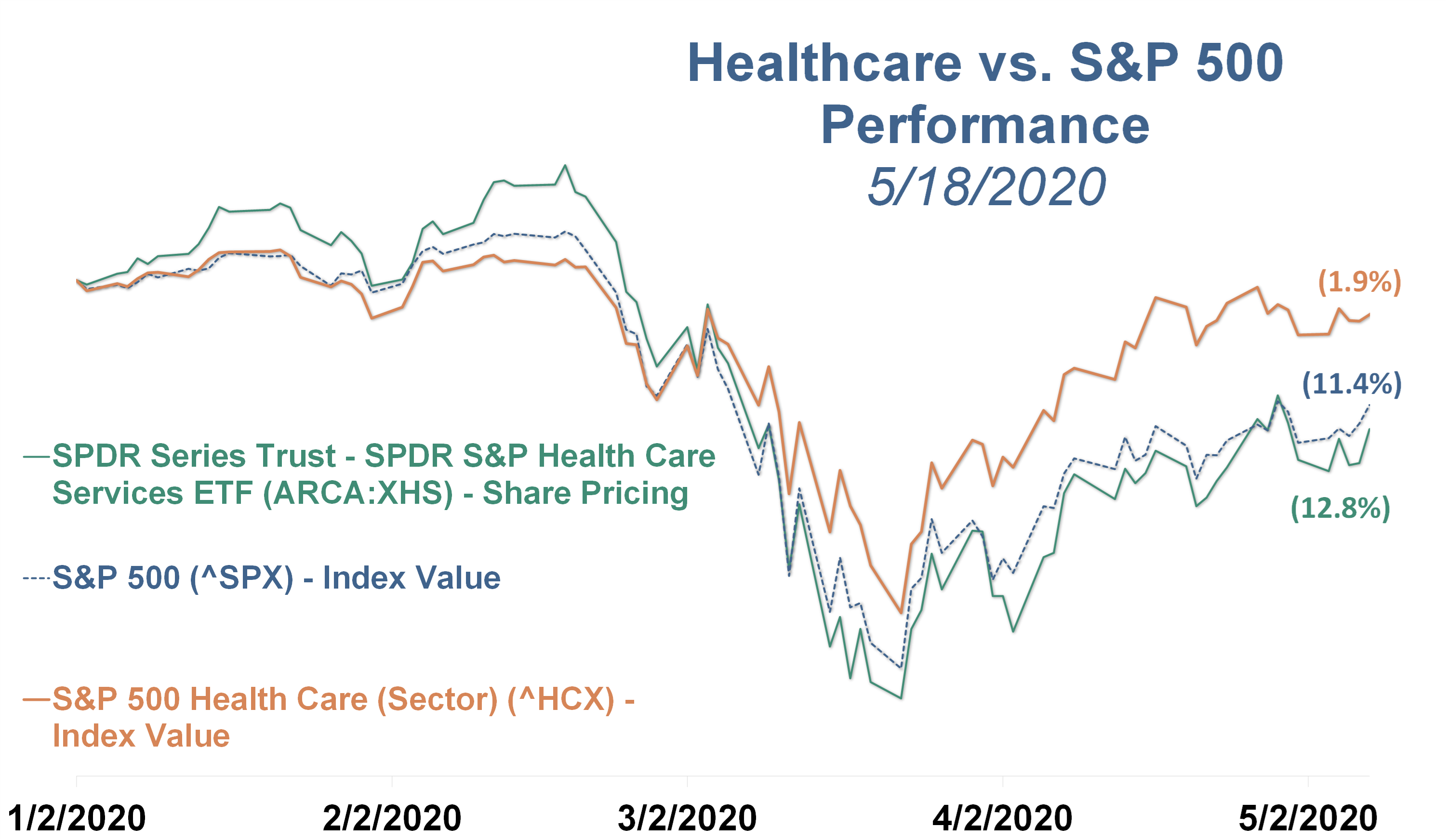This week’s top healthcare news.


Coronavirus need to know’s
The latest numbers: 1,535,123 infected; 91,306 deaths in the U.S. 4,713,620 infected; 315,185 deaths globally. (View more data)
A promising vaccine result: Moderna, a large biotech firm, reported very promising results from its phase-1 clinical trial for a coronavirus vaccine.
- After receiving 2 doses, most patients had antibody levels similar to those who have already recovered from the disease, and importantly, no safety concerns. The company will start Phase 3 trials in July, where the positive trend hopefully continues.
Vaccines and treatments errwhere: over 100 vaccines are in development globally, and 8 are in/starting human trials.
- Don’t forget about non-vaccine treatments, too. The WHO is cautiously optimistic regarding potential treatments after positive data was released.
- And don’t forget about Gilead’s remdesivir either, which is already being distributed. Read this interesting piece from Bloomberg on how the biotech giant prepared and was ready to meet the COVID-19 challenge
Opening up: Officials like Anthony Fauci are cautioning states against easing virus restrictions too quickly, thinking that the easing policies will cause unnecessary deaths.
- Some states are easing restrictions while others stay shut down (looking at you, California).
New models: Interestingly, many independent viral prediction models are now converging.
- NPR reports that most of these models are predicting 110,000 deaths by June.
Other ‘Rona Reads.
- In a rare mission within the U.S., Doctors Without Borders sent a team to the Navajo Nation.
- Kidney damage has been observed in one-third of COVID-19 patients studied in a new report
- Remember that 5-minute rapid COVID test from Abbott? A study found that the test misses nearly half of positive cases.
Healthy Muse Visuals
In this week’s infographic post, we talk about Teladoc’s unprecedented growth – in both market capitalization and actual visit volumes – as a result of COVID-19. Click here to learn more.
Don’t call it a comeback – the return to Obamacare.
State Medicaid expansion? The WSJ reports that many GOP-led states are actually considering expanding Medicaid (paywall), something that would have been political taboo a short while ago.
- It makes me wonder if these states will ask for block-grant funding – a new funding proposal Trump wants to try with Medicaid.
Insurers eye Obamacare: As individuals unfortunately lose jobs, many believe that the number of Medicaid enrollees will vastly increase.
- Historically, certain insurers like United have stayed away from most ACA exchanges. That is, until now. Many insurers are expected to step back into the ACA insurance market as a result of the coronavirus. It starts with United re-entering Maryland.
State Budget problems: Despite the increase in unemployment and a public crisis, state officials are facing difficult budgeting decisions because of drastically lower tax revenue.
- Many are considering cutting Medicaid budgets. In most states, Medicaid can comprise 20% or more of the budget, so it’s the first place officials look when it comes to cutting back on expenses.
So in summary: Some states are looking to expand Medicaid to increase federal $$$ to healthcare. Health insurance giants are getting back into ACA exchanges. Other states are planning to slash Medicaid budgets in a budget-balancing effort. Medicaid enrollees are expected to increase anywhere from 10 million to 23 million individuals over the next several months.
Relief fund problems.
This week, House Democrats proposed an additional $100 billion in emergency funding for providers.
- While the bill is DOA in the Senate, that doesn’t mean that Phase 4 of the stimulus won’t provide more $$$ for providers.
Providers are growing increasingly concerned that the relief funds come with hidden strings attached – like quarterly reporting on where the money is going.
- Other concessions that providers may need to make if they take the money: no surprise (out of network) billing, disclosing reimbursement rates from private insurance (AKA price transparency), and more.
We’ve already seen providers speak cautiously about relief funds. Encompass Healthcare mentioned on its earnings calls that it had no plans to use the relief funds until the firm better understood the implications from HHS.
- Expanding on that, home health providers are shying away from the funding too, fearing a CMS, WWE-style smackdown.
Other funding problems: Medicaid clinics and doctors have reported difficulties in getting relief funding. And a KHN analysis indicated that hospitals with higher levels of private insurance revenues are receiving a ‘disproportionately high share’ of total relief funding.
- This makes sense, considering HHS’ methodology in distributing CARES Act funds: based on providers’ proportion of Medicare revenue for Round 1, then based on providers’ proportion of total net patient revenue for Round 2.
- (Of course the hospitals with higher revenues will receive more funding – for now. Especially because private insurance reimburses providers at much higher rates than does Medicare. It’s not a secret.)
Quick Hits
Biz Hits
- The largest nonprofit health system CommonSpirit posted a $1.4 billion loss in the first quarter of 2020.
- The Pennant Group, a new home health and hospice company that IPO’d in late 2019, is starting some aggressive M&A in hospice.
- It’s like tinder, but for medical supplies. Hospitals turn to online matchmakers to swap supplies.
- Fitch ratings expects the worst outlook ever for nonprofit hospitals in Q2 on record.
- Hospitals balk as CMS doubles down on price transparency.
Other Hits
- The FDA halted Bill Gates’ coronavirus testing program this week.
- Anti-vaccine movement could undermine efforts to end coronavirus pandemic, researchers warn.
- A KHN analysis estimates that 27 million Americans lost health insurance. About 80% of those have other options. Personally, I’m skeptical. The analysis doesn’t account for those who have been furloughed, are still on their employers’ health insurance plans, and are also eligible for unemployment benefits. The numbers will show the true fallout in the coming months.
Thought-Provoking Editorials
- Healthcare providers risking their lives deserve hazard pay. (ModernHealthcare)
Thanks for reading.
Follow me on Twitter.
- Save yourself some time by subscribing to our all-in-one newsletter. Subscribers get the first edition – every Monday night.
About the Healthy Muse.
The Healthy Muse was created to educate people on the healthcare system.
- It’s one weekly e-mail updating you on all the major election news, broader trends, big stories, and policy updates. Learn more about our vision here.
Get smarter and sign up below today.